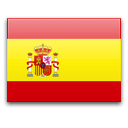"ELIOT" // PETIT CANVAS
DESCRIPTION:
- "WORMS OF LAPSO" collection
- High quality canvas available in 48x48cm
-
Very limited edition numbered and signed by the artist (1/45)
-
Natural high grammage canvas with texture made with recycled cotton
- Sealed and protected with UV-Varnish
- Personal dedication on request
- Plastic free shipping
ABOUT THE COLLECTION:
A LAPSO is the portion of time that passes between two limits.
During the span of our life we create our story from beginning to end, from the first darkness to the last light...
(read more information below)
The process of making canvases is undoubtedly unique.
High quality canvases are processed with heat acrylic inks, the increase in temperature causes the pore of the canvas to open. In this way the ink is introduced to the deepest part of the fiber, the result is a live pigment with an exceptional finish.
The canvases are made of recycled cotton with a high grammage and organic textures.
They are subsequently sealed with a protective spray to maintain the quality of the canvas, with a special shine.
* This product does not include a frame
The worms of the span build galleries in the wood and feed on it while they complete their life cycle. They can choose their route and simply move forward without the need for nostalgia, without the anguish of not knowing the fate that awaits them. They will not have no chance of return, their path is the size of their body and from the moment they embark on their journey they trace their own destiny, leaving an indelible mark that defines them and leads them to what they will become, without any ability to remake or correct, victims without remedy of the path they decide to travel.
For better or worse, we are what we live. Like the worm, we are also free to choose where we want to go, we cannot go back to erase the pain, or to do things we never did. We cannot choose who we are, but we can dream what we want to be and discover what we were: Sometimes, victims of ourselves and, less often, our own heroes. We are what we live, slaves of our words and our rectifications: We are able to overcome ourselves, to learn, to improve, but still, like the worm, marked by the footprint that we are leaving in our path, marked by the footprint left by the It happened in us too. A time scar which remind us and want to improve. We are our shadow, our groove.
We walk straight through our days searching for meaning, while we know that everything can collapse at any time. It is the uncertainty of the one who falls and rises, knowing that he will return to the ground. We walk, we stagger, we fall; life as it is, with its colours and its bitter endings, guarded by a clock that shouts at us our achieved goals, which reminds us of the time found and the days lost.
In the worms of Lapso, Koko Che Jota, speaks of the ability of the human being to overcome the times that are necessary, of the ability to move forward. To tell this story, she paints women of sincere beauty and infinite eyes. Women alone in quiet places, as metaphors of a fire in suspension, in incubation, on a war footing, with no more weapons than the will of reason and wisdom hibernated between four complicit walls, in rooms that speak of the taste of living beautifully, of the art of everyday life ... because it cannot be otherwise. The beauty, that gives off the simple, the elegance of naturalness without props,lights or filters. Find that beauty on the sofa at home, in a chair, in the abandoned pot in the corner, in the common things we live with and in the people we meet on any street, in any coffee shop. People with whom we share a reality under construction.
They are paintings that are drawn from simplicity, from the truth that surrounds us and in which we do not repair. Paintings that do not pursue beauty as marketing, nor turn women into a consumer product, paintings that seek poetry hidden behind an anonymous look.
This is a work that speaks of the simple gesture of opening the eyes, of waking up surrounded by a beauty that was always there, in any object, in any compromised mind. Talk about who we are and what we do while we are, with the optimism of who will never stop looking.
“The footprint we leave is as important as the horizon we pursue.”





